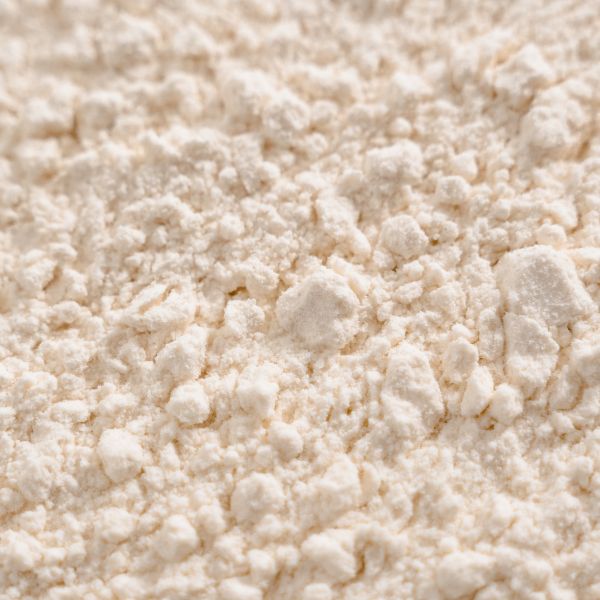
In the competitive landscape of industrial thickeners and stabilizers, guar gum powder remains a vital component across multiple sectors - from food processing to personal care and textiles. Particularly in bulk production, where consistency defines product reliability and brand reputation, stringent quality control measures are non-negotiable. Whether it's goma guar used for thickening or guar gum fiber powder in health-oriented applications, maintaining uniformity in properties like viscosity, color and moisture content is essential.
These measures include raw material testing, process standardization, in-line monitoring and final batch validation. This guide explores how these quality control strategies ensure dependable results, helping guar gum suppliers in India and globally maintain customer trust and operational excellence.
Raw Material Verification: The First Line of Consistency
The quality control journey begins with the guar seeds themselves. Not all seeds yield the same grade of gum, so rigorous screening is critical. Producers evaluate seed purity, moisture levels and endosperm content - key factors that determine final gum quality.
Key Quality Control steps at this stage:
- Inspecting for contaminants, pests and mold
- Moisture content analysis to prevent spoilage
- Lab testing to determine galactomannan concentration
Since guar gum bulk orders depend on repeatable performance, sourcing from reliable farms and conducting seed profiling ensures that production starts on a controlled foundation.
Dehusking and Splitting Controls for Guar Gum Powder
Once harvested, the seeds undergo dehusking and splitting - mechanical processes where impurities can be introduced if not carefully managed. Uniform particle size and clean splits are vital to prevent inconsistent hydration and gelling properties later.
Controlled elements include:
- Calibration of dehusking machines for precise separation
- Air classification systems to remove husk residues
- Manual or automated sorting for damaged or off-spec splits
This stage is especially important when producing for sensitive applications such as guar gum in hair products, where purity and performance are critical to consumer safety and satisfaction.
Grinding and Milling: Achieving Target Mesh Size
Milling transforms the guar splits into fine powder, depending on the application. Maintaining a consistent mesh size is vital in guar gum powder bulk production, as it directly affects hydration speed, viscosity and end-use performance.
Quality measures include:
- Monitoring mill speed and temperature to prevent degradation
- Periodic sampling during runs to verify granulation
- Sieving systems to remove oversized or undersized particles
Especially in thickening with guar gum, a uniform grind ensures that products behave predictably in every batch, eliminating performance variance in food, pharmaceutical or industrial use cases.

Moisture and Viscosity Testing: Ensuring Functional Reliability
Moisture content and viscosity are among the most important functional parameters in guar gum powder. Too much moisture can lead to microbial spoilage, while inconsistent viscosity can compromise the powder’s performance as a thickening or stabilizing agent.
Control strategies:
- Low-temperature drying systems to prevent thermal damage
- Viscosity benchmarking using standardized viscometers
- Regular moisture checks using analyzers
Whether used in guar gum in India for food-grade formulations or for technical applications, these parameters dictate customer confidence and formulation stability.
Microbial and Allergen Testing
In applications where guar gum enters personal care, cosmetics or food products, microbiological safety is non-negotiable. Quality control labs conduct routine microbial testing to ensure absence of pathogens, molds and harmful bacteria.
Standard practices include:
- Surface tests on machinery and containers
- Allergen control through dedicated production lines
For guar gum powder destined for health-conscious or sensitive consumers, like in dietary fiber applications, maintaining hygienic quality can be a market differentiator.
Packaging Integrity and Contamination Prevention
Packaging plays a significant role in preserving product quality. Poor packaging can introduce contaminants or alter moisture content, degrading the guar gum’s performance during storage or transit.
Quality measures in packaging include:
- Using food-grade, moisture-proof liners and bags
- Sealing systems that prevent oxygen and water vapor ingress
- Labeling protocols to include batch numbers, production date and storage instructions
Bulk guar gum powder is typically packed in bags, so maintaining physical integrity during handling and transport is essential. Reliable packaging ensures the guar gum remains within its specified quality range until it reaches the customer.
Customer Feedback and Product Adjustments
Feedback loops are essential in refining product quality over time. Manufacturers often collaborate with buyers - especially those using guar gum in hair products, food processing or textiles - to adjust specifications based on real-world performance.
Feedback mechanisms include:
- Customer surveys on batch performance
- Technical support and formulation advice
- Periodic reviews of rejection reports or non-conformance issues
By aligning production with market demands, manufacturers can adapt quickly to changing needs and maintain consistency, even as application standards evolve.
Conclusion
The success of guar gum powder bulk production lies in precision, consistency and control. Every phase - from raw seed selection and dehusking to milling, packaging and customer delivery - requires a disciplined approach to quality. When executed correctly, these measures ensure the final product meets strict specifications for viscosity, moisture content, safety and performance.
Abdullabhai Abdul Kader stands out as a leading producer and exporter of guar gum powder, particularly those in regions like India, quality control isn’t just a regulatory requirement - it’s a competitive advantage. As global markets demand increasingly uniform and reliable industrial ingredients, strong QC frameworks are what elevate manufacturers from commodity suppliers to trusted solution providers. By investing in rigorous quality measures, the guar gum industry continues to provide essential functional ingredients to sectors as diverse as food, personal care, textiles and industrial processing.



